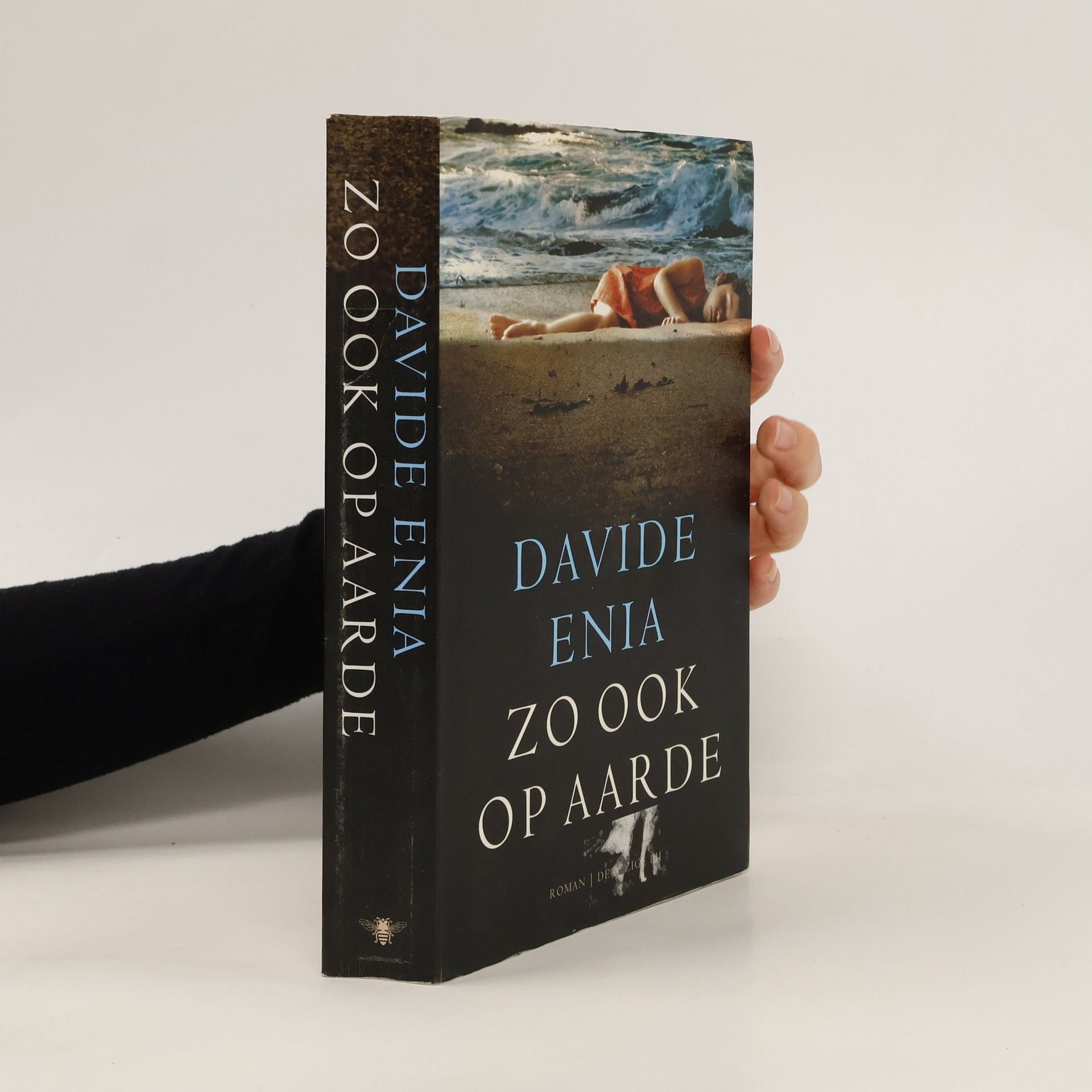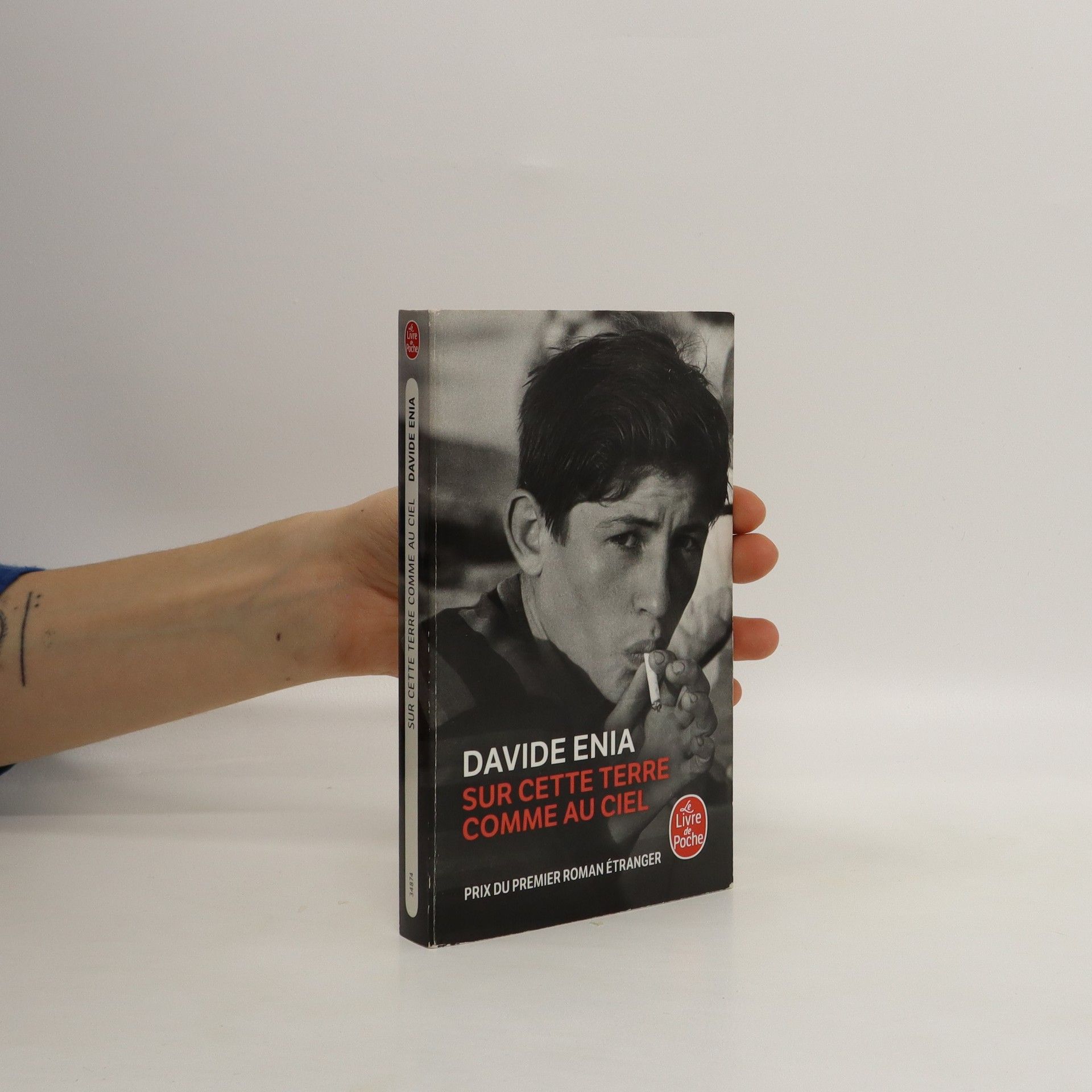Palerme, années 1980. Comme tous les garçons de son âge, Davidù, neuf ans, fait l'apprentissage de la vie dans les rues de son quartier - amitiés, rivalités, bagarres, premiers émois et désirs pour Nina, la fillette aux yeux noirs pour laquelle il ira jusqu'à se battre sous le regard fier de son oncle Umbertino. Pullara, Danilo et Gerruso rêvent de devenir ouvrier ou pompiste comme leurs pères. Davidù, lui, n'a pas connu le sien, mais a hérité de son talent de boxeur. Entre les légendes du passé et les ambitions futures, le monde des adultes et la poésie de l'enfance, Davide Enia, finaliste du prix Strega, tisse le destin d'une famille italienne à travers trois générations d'hommes. Entremêlant leurs histoires avec brio, il dresse un portrait vibrant de sa terre, la Sicile, et de ceux qui l'habitent. Prix du Premier Roman étranger.
Davide Enia Livres





On Earth as It Is in Heaven
- 320pages
- 12 heures de lecture
"A generational saga about a family of boxers living in Sicily--from World War II through the Mafia attacks in the nineties--chasing the national heavyweight title"-- Provided by publisher
Ein eindringlicher Text über die Insel Lampedusa, ihre Bewohner und die Menschen, die dort Rettung suchen – ein großes Zeugnis von Humanität. „Das Baby ist winzig, die Mutter selbst noch ein halbes Kind. Sie sind da, fünf Meter von mir entfernt. Und direkt vor mir gehen drei Mann gleichzeitig unter. Wen soll ich also retten? Zu wem soll ich hin? Was tun? Rechnen – das ist alles, was man in so einer Situation tun kann. Mathematik. Drei sind mehr als zwei. Drei Leben sind ein Leben mehr.“ Davide Enia reist nach Lampedusa, um die Insel, die zum Symbol der Flüchtlingskrise geworden ist, selbst zu erleben. Durch Gespräche mit Rettungshelfern, Freunden und Fischern sowie seine persönlichen Eindrücke während Rettungsaktionen und „Anlandungen“ entsteht eine dichte, ergreifende Erzählung. Lampedusa wird zum Mikrokosmos, in dem die Folgen von Migration und Flucht unmittelbar spürbar sind. Enia erinnert sich auch an magische Sommer an der sizilianischen Küste und versucht, die Unschuld dieser Zeiten wieder heraufzubeschwören. Seine Tage auf Lampedusa sind geprägt von der Sorge um seinen krebskranken Onkel und dem nahenden Verlust. Dieser persönliche Schmerz verdeutlicht, was die Katastrophe vor den europäischen Küsten für die Tausenden, die im Mittelmeer ihr Leben verlieren, und ihre Familien bedeutet. Enia macht das Unfassbare fassbar und zeigt die Schönheit des Mittelmeers sowie die menschlichen Tragödien, die dort zum Alltag gew
Zo ook op aarde / druk 1
- 334pages
- 12 heures de lecture
Davidu is negen jaar oud als hij ziet hoe zijn buurjongen Gerruso door een groep jongens wordt mishandeld. Als ze daarna ook Gerruso's nichtje Nina aanvallen, grijpt Davidu in. Zijn oom Umbertino is getuige van Davidu's kracht en bedrijpt dat zijn neefje voorbestemd is net als hijzelf een groot bokser te worden. Davidu groeit op in de vieze straten van Palermo, zonder vader maar met een opa en oma. Zij brengen hem de waarden bij die hij nodig zal hebben om te kunnen overleven in het arme Palermo waar de maffia heerst, het recht van de sterkste geldt en het leven draait om eergevoel.